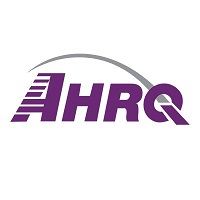 By Karin Rhodes, M.D., M.S., Chief Implementation Officer, and David Meyers, M.D., Deputy Director, AHRQ
By Karin Rhodes, M.D., M.S., Chief Implementation Officer, and David Meyers, M.D., Deputy Director, AHRQ
Twitter: @AHRQNews
AHRQ’s recent request for information published in the Federal Register sends an exciting signal about the Agency’s growing efforts to re-imagine and improve the way healthcare is delivered. It foreshadows a new era of robust initiatives designed to ensure widespread use of the findings of patient-centered outcomes research (PCOR) to positively impact outcomes that matter to patients and families.
The promise of PCOR is great. This burgeoning field explores how best to improve health and healthcare through rigorous comparisons of two or more preventive, diagnostic, treatment, or delivery approaches. At the core of PCOR is the understanding that patients’ preferences and values must be central in research. At AHRQ, we believe greater use of PCOR findings holds the promise of achieving higher quality care that is more equitable and patient-centered.
Thanks to previous support from the PCOR Trust Fund—a funding source established by Congress in 2010 under the Patient Protection and Affordable Care Act—AHRQ has already made important contributions to establishing the field and the gains in implementation of PCOR findings:
- AHRQ training grants have helped hundreds of researchers augment their skills in PCOR methods and advanced efforts to generate new scientific evidence and develop effective analytic tools.
- Investments in shared decision making have improved provider-patient communication.
- AHRQ’s Academy of Behavioral Health Integration & Primary Care has expanded the availability of tools for providers to detect and treat common mental health issues, as well as offer wider access to medication for opioid use disorder.
- With broad investments in practice facilitation, AHRQ’s EvidenceNOW project has increased the ability of primary care practices to use evidence to improve heart health, treat unhealthy alcohol use, and manage urinary incontinence in women.
- AHRQ’s Compendium of U.S. Health Systems, a first-of-its-kind publicly available database on the characteristics and organization of U.S. health systems, has helped to identify policies and practices most conducive to implementing PCOR quality improvement in health systems.
- Through the CDS Connect initiative, AHRQ has developed a repository of shared, publicly available, FAIR (Findable, Accessible, Interoperable, Reusable) clinical decision support tools to guide evidence-based clinical care.
With the recent reauthorization of the PCOR Trust Fund, through 2029, the Agency is eager to develop new PCOR training initiatives and projects that will support the dissemination and implementation of PCOR evidence into practice and train additional researchers to partner with patients, families, and communities to conduct PCOR. To do so effectively, the Agency has developed a strategic plan to guide our long-range planning and seeks public input on the framework and about the best possible strategies for its PCOR investments.
We recognize this moment as an opportunity to refresh our strategic vision of the U.S. healthcare system—one that benefits from the growing potential of digital technologies, reinvigorates the Nation’s primary care infrastructure, enhances prevention and care for people with chronic conditions, and seizes the opportunity to increase health equity.
Our current Strategic Framework to Guide AHRQ’s PCOR Trust Fund Investments, now in draft form, is a good start. Developed by AHRQ staff, it suggests foundational building blocks for future investments. Included are a proposed PCOR mission, a vision, high-level goals, priorities, and desired outcomes.
However, we are sure the framework can be even better. It is our hope that stakeholders across the healthcare spectrum—researchers, clinicians, health system leaders and patients—respond to the Agency’s newly published Request for Information in the Federal Register. We’re eager for fresh and ambitious ideas to guide AHRQ’s future investments.
In coming months, using feedback from the public, AHRQ will also work closely with other recipients of PCOR Trust Fund support—the Patient-Centered Outcomes Research Institute, and HHS Assistant Secretary for Planning and Evaluation—to ensure that PCOR investments are coordinated and aligned.
Please explore AHRQ’s proposed strategic framework, as well as draft key questions, and share your ideas. We look forward to hearing from you!
This article was originally published on AHRQ Views Blog and is republished here with permission.
